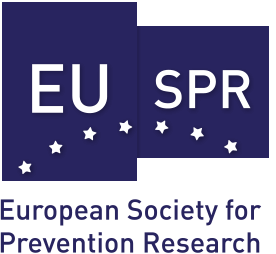For workshop registration, please visit our Ex Ordo website.
Workshop 1: Enhancing GBG and PAX GBG Implementation through Mentoring – Challenges And Benefits – Wednesday, 28th September, 13:00 – 16:30 GMT+3
Presenters: National Institute for Health Development (Estonia); City of Malmö (Sweden); Linnaeus University (Sweden); Vestigio (Sweden).
Location: Radisson Olümpia Blu, Tallinn Liivalaia 33
Teachers need ongoing support to implement preventive interventions and to acquire skills needed for that. Mentors can provide individual support and encourage teachers to try out different elements of the intervention, guide them in the correct use of the methods, and model the use of intervention elements with teachers themselves. European countries currently have various systems in place for supporting the teachers in the implementation of Good Behavior Game and PAX Good Behavior Game in elementary schools. During this workshop we will talk about different forms of mentoring, and the benefits and challenges regarding these. Different strategies for supporting teachers will be shared.
CLASSROOM VISITS TO EXPERIENCE THE IMPLEMENTATION OF PAX GBG AND REFLECT ON THE EXPERIENCES – Wednesday, 28th September, 8:00 – 12:00 GMT+3
The PAX GBG was adopted in Estonia in 2014 by the National Institute for Health Development (NIHD) and has been implemented since in over 150 schools by more than 600 teachers. Several studies have demonstrated that PAX GBG is accepted and appropriate for Estonian teachers (70% of the teachers feel that adaptations to the intervention are not necessary) and teachers’ satisfaction with the intervention and with the support that PAX GBG mentors provide to them is high (most teachers would recommend the programme for other teachers – the average recommendation rate is 9.0–9.1 points on a 10-point scale and the average score given by teachers for their satisfaction with mentoring has remained between 5.6–5.9 on a 6- point scale).
We offer the interested participants a chance to visit classrooms where PAX GBG is implemented, and reflect the observations later with the mentor and the teacher. Participants can observe 1-2 lessons and experience the implementation of behaviour influence strategies which environment.
The classroom experience has limited availability (15 places). Transport to/from Schools in Tallinn and Harjumaa will be organized.
Workshop 2: Supporting Families in Challenged Settings – Wednesday, 28th September, 13:00 – 16:30 GMT+3
Presenters: UNODC Prevention,Treatment & Rehabilitation Section
Location: Radisson Olümpia Blu, Tallinn Liivalaia 33
During last decade Europe has seen many refugee crisis, latest following Russia’s invasion of Ukraine where many families have experienced devastating consequences. Some of them have been internally displaced, migrated, live in refugee camps or in conflict/post-conflict situations all over Europe. During this workshop we will discuss what can prevention professionals do to reach parents who have fled from the war and what skills and practices can support them face the challenges wrought by the war?
Workshop 3: Implementation of the Unplugged School-Based Prevention Programme – Wednesday, 28th September, 9:00 – 12:00 GMT+3
Presenters: University College Ghent (HOGENT)
Location: Ministries Building, Suur-Ameerika 1
The workshop is aimed at trainers, implementers, decision makers and researchers with interest in universal prevention with social influence and life skills approach. The workshop will present HOGENT Unplugged online training of teachers workshop manual with discussion on opportunities and limitations; Introduction to the LineUp LiveUp sports based program from UNODC: inclusion of criminality indicators as outcomes, try out, discussion on program potential; Latest updates on Unplugged projects worldwide, including Pakistan project. Future challenges and possible directions for the network.
This workshop is interactive, building on experiences and visions of participants. If participants like to make a contribution in the form of a presentation on opportunities, contribute an exercise, latest project results, etc. please contact the workshop facilitators to discuss.
Workshop 4: Open (Prevention) Science: Barriers, Opportunities, and Where To Start (Early Career Workshop) – Wednesday, 28th September, 13:00 – 16:30 GMT+3
Presenters: EUSPR
Location: online workshop
The umbrella term Open Science refers to strategies, tools and methods to increase transparency, openness, communication, replication and reusability of scientific research. As a scientific paradigm, it targets the entire research process from developing ideas, formulating research questions to study design, implementation, analysis, and evaluation. So far, many applications of Open Science frameworks, toolboxes and manuals have been developed to guide basic and applied, qualitative, quantitative and theoretical research from an Open Science perspective. However, for many preventionists, there are many educational, economic and structural barriers to Open Science Practice, challenging the goal of Ethical Prevention Science. Therefore, this workshop aims to introduce core principles of Open Science, present their connection to ethical prevention (science), and provide tips and tools for early career researchers in applying them to their work.
Workshop 5: Common Flaws in Designing and Analyzing Preventive Interventions and How to Avoid Them – Wednesday, 28th September, 9:00 – 12:00 GMT+3
Presenters: Karl Hill, Yasemin Kisbu, Jon Moyer Christine Steeger, Pamela Buckley
Location: Ministries Building, Suur-Ameerika 1
The workshop will highlight common serious flaws seen in proposed and published preventive interventions and discuss strategies for avoiding them. Despite the field’s published Standards of Evidence (Flay, et al. 2005; Gottfredson, et al. 2015), many studies with serious design and implementation flaws get funded, incorrectly analyzed and become published. For example, the Blueprints (http://www.blueprintsprograms.org) team has reviewed over 1600 interventions to date, but only 103 (18 Model or Model Plus and 85 Promising) had sufficiently strong design and implementation materials to be certified by the review board. The workshop begins with an overview of a range of common design and analysis problems seen in published preventive interventions. Then, two specific problems are then discussed in greater depth: (1) designing and analyzing mediation and moderation of intervention effects and (2) designing and analyzing cluster- randomized and related designs. The workshop then discusses the importance of and approaches towards increasing research transparency (making public the underlying information, materials, and processes informing a scientific claims) as a means of increasing trust in and validity of research findings.
